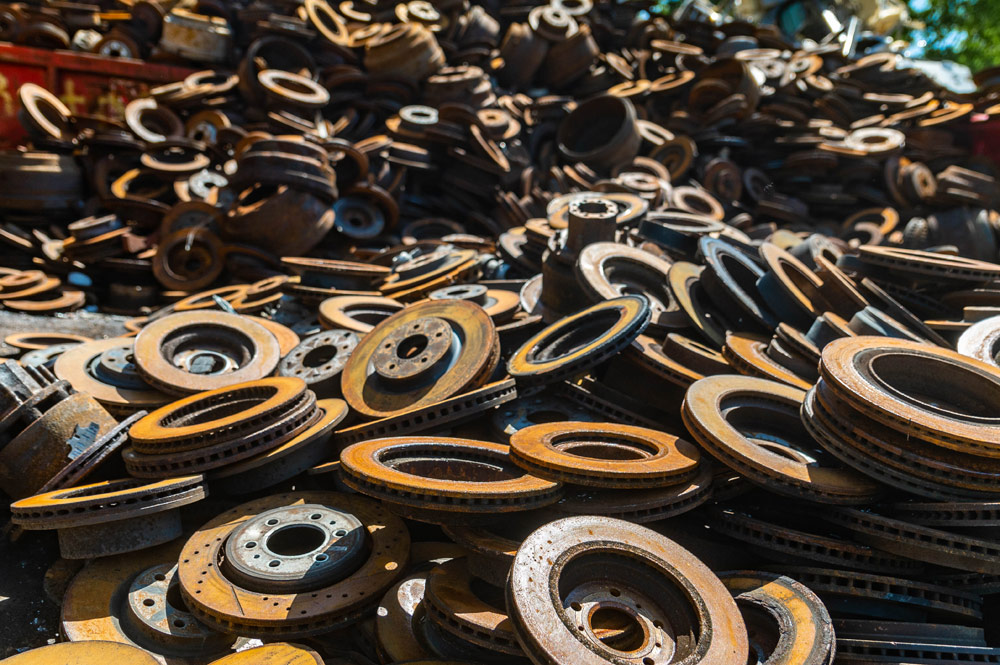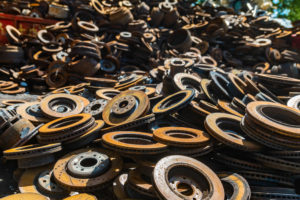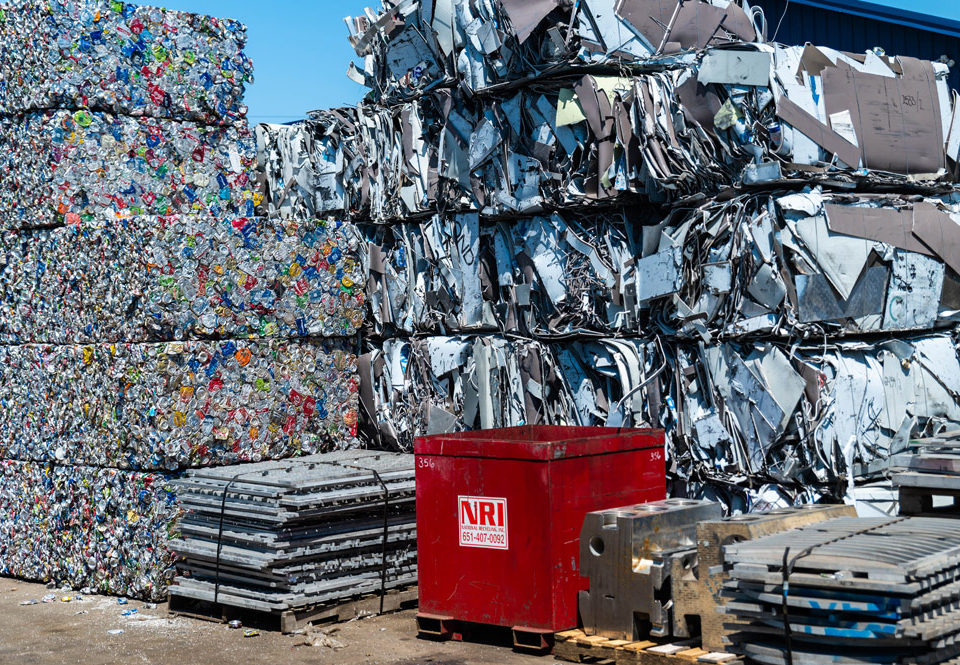
 Ferrous metals are considered to be either an alloy containing iron or pure iron. The word ‘ferrous’is derived from the Latin word “ferrum” which means iron. One of the most common forms of ferrous metal alloy is steel. Ferrous metals will also contain small amounts of various metals and elements in order to form the adequate properties. These metals provide very little resistance to corrosion and are highly magnetic.
Ferrous metals are considered to be either an alloy containing iron or pure iron. The word ‘ferrous’is derived from the Latin word “ferrum” which means iron. One of the most common forms of ferrous metal alloy is steel. Ferrous metals will also contain small amounts of various metals and elements in order to form the adequate properties. These metals provide very little resistance to corrosion and are highly magnetic.
All commercial forms of steel and iron contain carbon, which is an essential part of the metallurgy of steel and metal. There is a strong demand for ferrous metals, therefore scrap is highly sought after. The majority of recycling companies will pay for amounts of scrap metal.
Types and Features of Ferrous Metals
There are a number of various ferrous metals available to be found in the market. Below you will find the various types and features of them.
– Cast Iron – Cheap, hard, strong and self-lubricating.
– Mild Steel – Ductile, high tensile strength, tough. Due to the fact of its low carbon content, it is unable to be tempered and hardened. In fact, it must be case-hardened.
-High Carbon Steel – This is considered to be the hardest of all carbon steels. It is far less malleable, tough and ductile.
-Stainless Steel – Resistant to corrosion.
There are also a number of other types of steel including construction steel, spring steel, free cutting steel, low temperature steel, high strain steel and high temperature steel.
Manufacturing Process of Ferrous Metals
Ferrous metals need to be extracted from iron ore. Iron ore can be found with the earth’s crust and it contains a number of metals and metal compounds include iron oxide. However, ore is often found combined with a number of other substances. In an effort to optimize the use of the metal, it must be fully extracted from the mixture.
The method that is primarily used to extract the metal from the ore will depend on its reactivity. Dealing with iron, which is a less-reactive metal, it can be extracted with either carbon monoxide or carbon. Iron will then be extracted from the iron ore, is a large container known as a blast furnace. Oxygen will also need to be removed from the iron oxide to leave the iron behind.
Applications of Virgin Material Ferrous Metals
Ferrous metals are used in a number of various applications. The following are some of the key applications:
– Heavy crushing machinery
– Plates, nuts, bolts and girders
– Engine parts including gears and shafts
Machine tool parts, car cylinder blocks, brake drums, vices, plumbing fitments, machine handle and gear wheels.
– Kitchen drain boards, cutlery, aircraft and pipes.
– Cutting tools for lathes.
Files, chisels, hammers. lathe tools, taps, drills and dies.
Springs, metal ropes, garden tools and wire.

